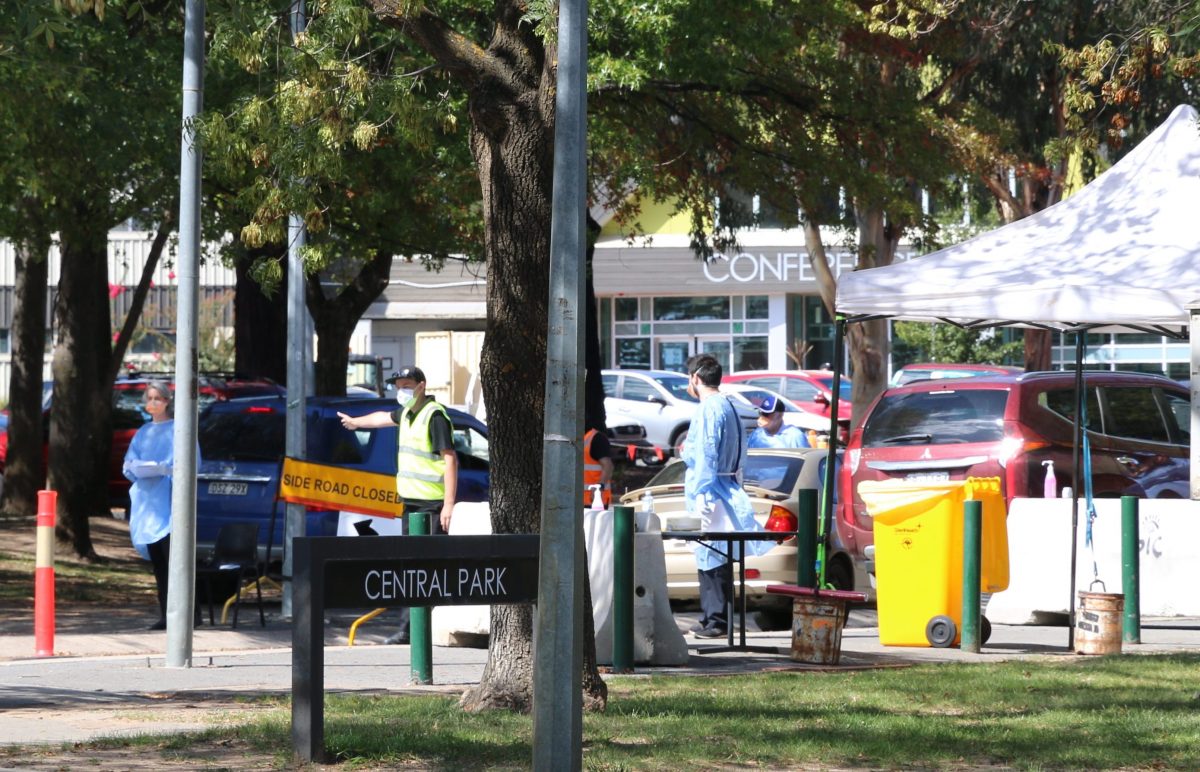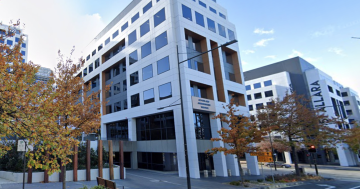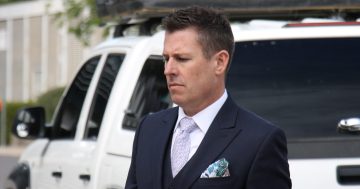
Long lines at the COVID-19 testing centre in EPIC, pictured in 2020, were a feature of the pandemic. Photo: File.
A person with disabilities was indirectly discriminated against twice while seeking testing in Canberra during the COVID-19 pandemic, a tribunal has ruled.
Michael Hollmann had made a discrimination complaint against the ACT Government stemming from several of his experiences, although the government denied the allegations had taken place.
In last week’s decision by the ACT Civil and Administrative Tribunal, the government was ordered to pay him $5000 in compensation after the tribunal upheld two of his claims.
The tribunal wrote that Mr Hollmann needs to use a wheelchair and has an acquired brain injury, as well as various physiological conditions that require the support of an assistance animal.
Senior Members Bryan Meagher SC and Daniel Stewart said there were six claims, which were alleged to have amounted to discrimination on the basis of his disability or gender identity or amounted to victimisation.
The senior members said they were impressed by Mr Hollmann when he gave evidence, describing him as “an excellent witness”.
“At the conclusion of the case, he made it clear that compensation was not important to him, but he was concerned to ensure that others did not have to go through what he did and was seeking to improve the system,” they wrote.
The government had argued there was a “lack of specific details” associated with Mr Hollmann’s claims, but he suggested the lack of supporting documentation was partly due to the government refusing to allow him access to documents.
Ultimately, the tribunal ruled there was insufficient evidence to establish most claims, but found he had been indirectly discriminated against on at least two occasions.
In one claim, Mr Hollman said he was not allowed to bring his assistance dog with him when he sought a test at the drive-through facility at Exhibition Park in August 2021, but the tribunal found it could not conclude it was unreasonable to exclude assistance animals from testing sites at the time.
However, after leaving EPIC, he tried to obtain a test at another facility in Weston Creek.
This time, he left his dog in his car and went inside, but was asked to wait after staff expressed concerns his wheelchair might not fit.
The tribunal found he was indirectly discriminated against by being forced to wait at least 10 minutes.
“By being made to wait in order to check whether his wheelchair could be accommodated, Mr Hollmann was subject to a requirement that did not affect other patrons to the facility,” it said.
“While having to wait short periods to ensure accommodation of Mr Hollmann’s wheelchair may be considered a reasonable condition, in our view, having to wait 10 minutes, with the possibility of having to wait far longer, was not reasonable in these circumstances.
“The facility was wheelchair accessible, and witnesses for the respondent were not able to identify any reason why the height of the wheelchair, or the use of a chair generally, might be a cause for concern in accessing the facility.”
Also, Mr Hollmann said he went to the testing facility in Garran in December 2021, but after parking in the disabled parking area, he had to cross an area of loose gravel to get to the building.
The gravel was deep enough to make it hard to push his wheelchair through it.
The tribunal’s senior members said by providing for disabled parking that required Mr Hollmann to move over a gravel surface without assistance, he had been indirectly discriminated against.
“In our view, even with the requirements of urgently establishing a temporary facility, it was unreasonable to require Mr Hollmann to move across the gravel without assistance in order to access the facility,” they said.
“It would not have been an unjustifiable hardship for the respondent to have provided additional means to ensure that assistance or an alternative means of access to a suitable testing facility was available.”


















